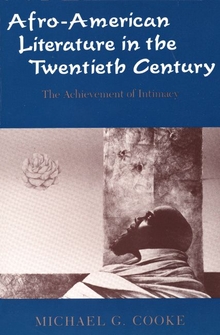Acts of Inclusion
WARNING
You are viewing an older version of the Yalebooks website. Please visit out new website with more updated information and a better user experience: https://www.yalebooks.com
Studies Bearing on an Elementary Theory of Romanticism
Michael G. Cooke
The copious attention visited on romanticism during recent decades has only rarely resulted in comprehensive theoretical constructions. This new work by Michael Cooke, offering an explicit theory of romanticism, is thus both needed and valuable. Cooke proposes that the multifariousness of the movement—found in single works and authors and compounded in the cross-relations among authors—is not an obstacle but a clue to grasping the singular essence of romanticism.
The romantic writer, refusing the cloak of hereditary values and forms, looks for value in a context of uncertainty and openness on a principle of essential non-exclusiveness. For anything possible to be posited, everything possible must be taken into account. The concept of inclusion, manifesting itself at almost any level—formal, thematic, generic, rhetorical, actional, or passional—underlies and reconciles much of romanticism’s apparent diversity, inconsistency, and incongruity: indeed, romantic literature may be said to constitute acts of inclusion.
Cooke explores his thesis in chapters on romanticism and the universality of art; on elegy, prophecy, and satire; on the norm of consequences in romanticism; on the feminine as the crux of value; on the mode of argument, especially in Wordsworth’s poetry; and on Don Juan as a test case of romantic form, exhibiting at once the obsession and the self-discipline of spontaneity. Arguing cogently and originally, he comes to terms with a fundamental truth about romanticism.
The romantic writer, refusing the cloak of hereditary values and forms, looks for value in a context of uncertainty and openness on a principle of essential non-exclusiveness. For anything possible to be posited, everything possible must be taken into account. The concept of inclusion, manifesting itself at almost any level—formal, thematic, generic, rhetorical, actional, or passional—underlies and reconciles much of romanticism’s apparent diversity, inconsistency, and incongruity: indeed, romantic literature may be said to constitute acts of inclusion.
Cooke explores his thesis in chapters on romanticism and the universality of art; on elegy, prophecy, and satire; on the norm of consequences in romanticism; on the feminine as the crux of value; on the mode of argument, especially in Wordsworth’s poetry; and on Don Juan as a test case of romantic form, exhibiting at once the obsession and the self-discipline of spontaneity. Arguing cogently and originally, he comes to terms with a fundamental truth about romanticism.
ISBN: 9780300023039
Publication Date: April 1, 1979
Publication Date: April 1, 1979
314 pages, 5 3/8 x 8 1/4
5 b/w illus.
5 b/w illus.



